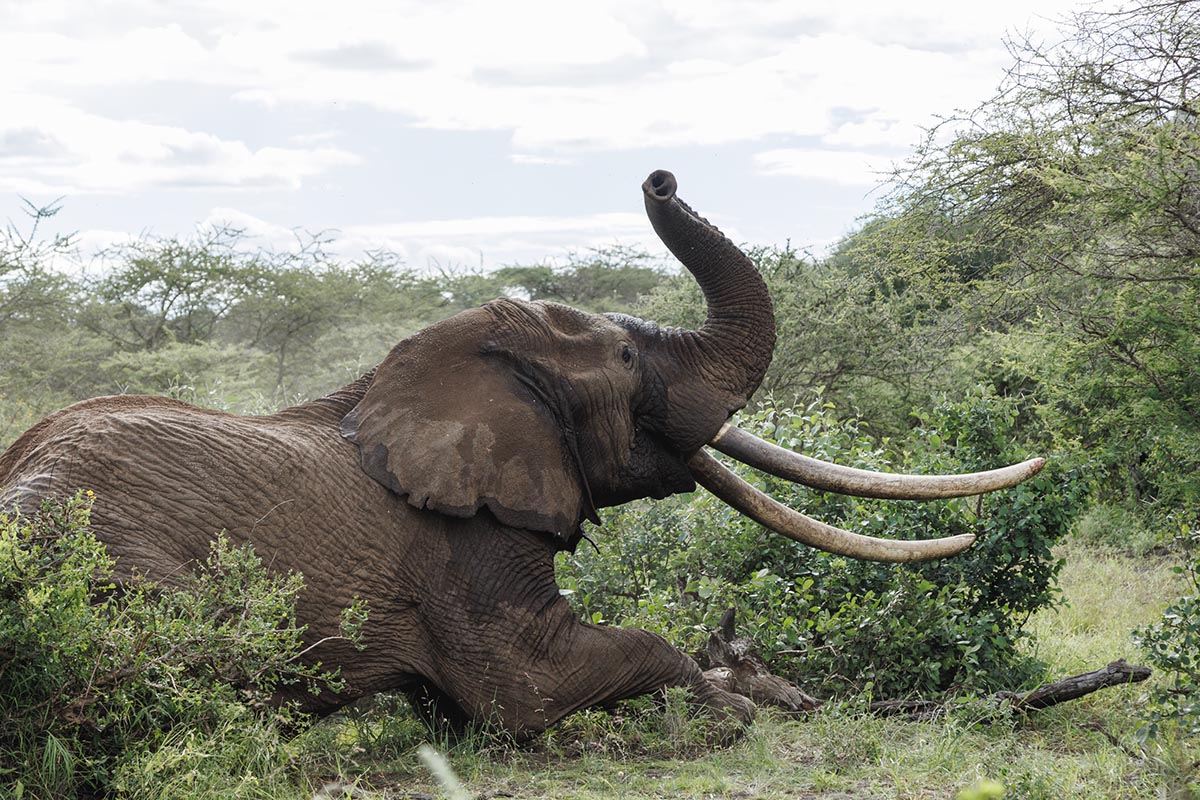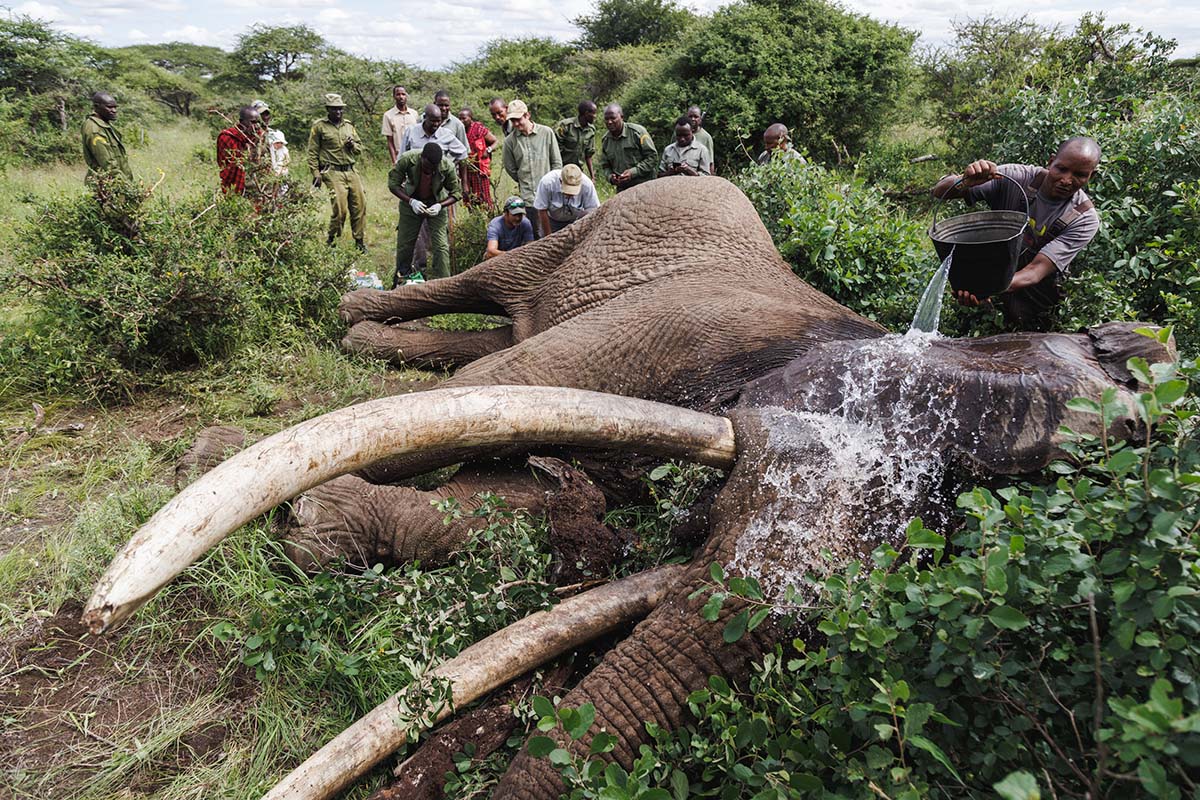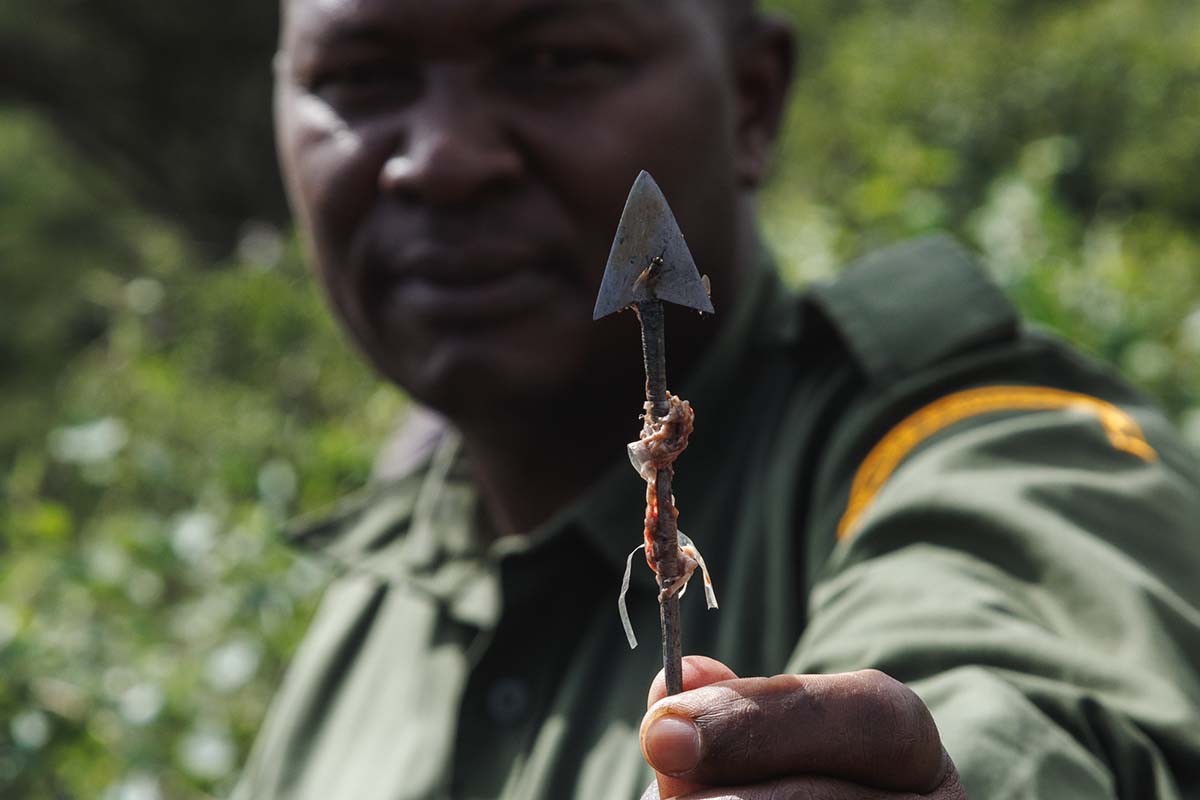
The vet kept digging. He knew there was something in there. With all the dead tissue, there had to be. The elephant known as Pembe (meaning ‘ivory’ or ‘tusk’ in Swahili) snored gently as the probing continued in his back leg, asleep under the effect of the anesthetic drugs.
Only hours earlier, Pembe had been upright, walking on a swollen and clearly painful leg. Luckily, a guide from Ol Donyo Lodge spotted him on a morning game drive and placed the call to Big Life.
Our partners at the Sheldrick Wildlife Trust were airborne almost immediately, carrying a Kenya Wildlife Service vet in their Sky Vet helicopter. The darting was a textbook operation, and so it was that Pembe found himself unconscious and at the center of attention.
We’ve known Pembe a long time, but he’s always been a bit of an enigma. He comes and goes from Big Life’s core operating area, and we were never sure where he went to. It turns out the Sheldrick Wildlife Trust have seen him in areas on the far side of the Chyulu Hills.
Those areas are dangerous: where crafting poisons from local plants and hunting with a bow and arrow are common. And it is a poisoned arrow that the vet eventually pulled out, almost certainly from a failed poaching attempt. Thankfully, the poison did not make it beyond the leg or Pembe would be dead already.
Seeing him up close confirms something else, which is that in the decades since he was first seen at the Ol Donyo Lodge waterhole, Pembe has grown to be one of a few rare and special elephants: a ‘tusker’ who carries tusks that weigh more than 100 pounds each. His impressive tusks make him a prize target for ivory poachers.
Another injection later to reverse the anesthetic, and Pembe is up and off back into the bush. We hope he won’t wander so far next time, but Big Life rangers will walk with him as far as they can.


